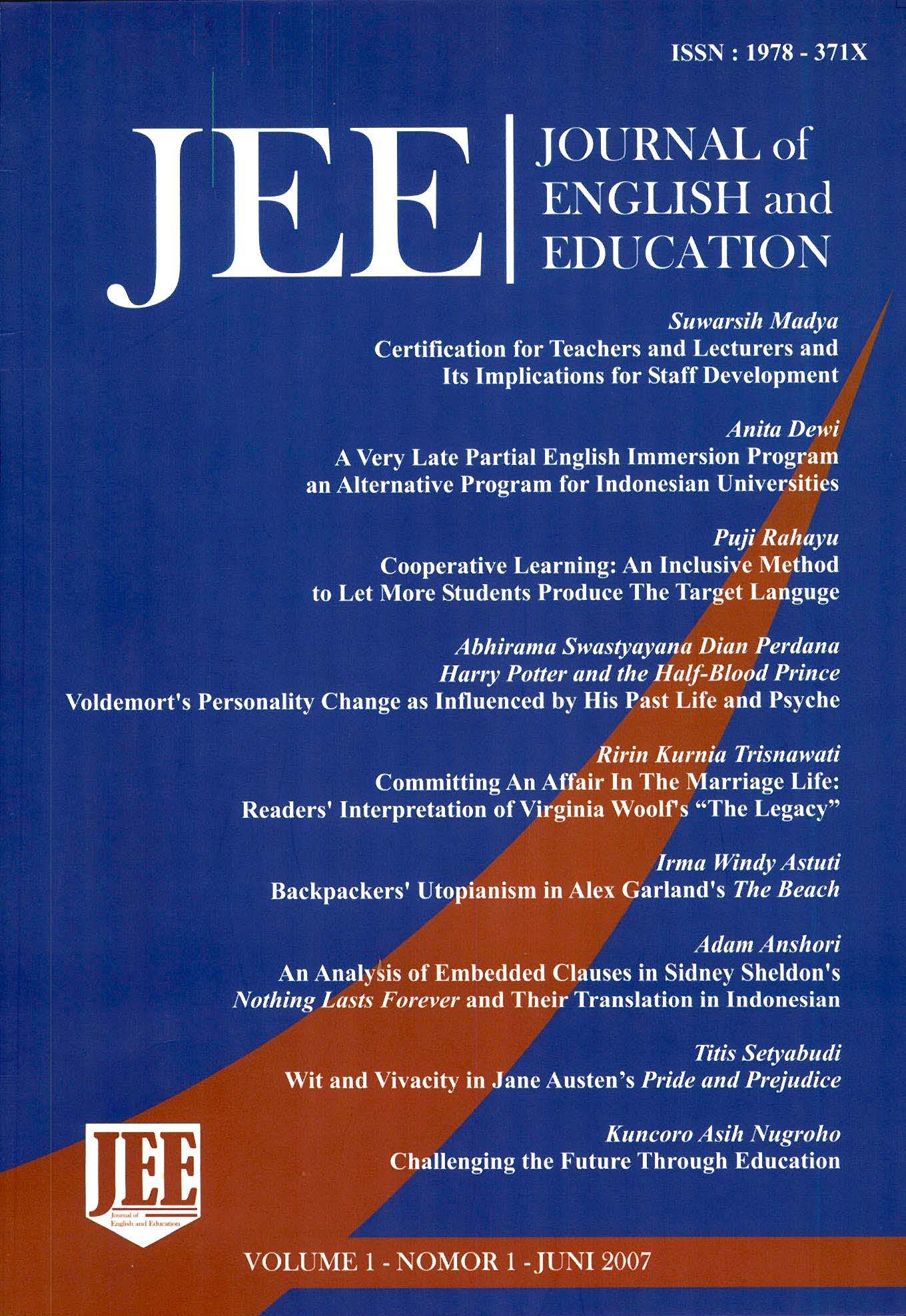Main Article Content
Abstract
The improvement of quality and relevancy,of education with the societal needs has been one of the big educational issues in Indonesia. It has been one of the considerations for the decision to adopt Education Act No. 20/2003 on National Education System. With its quality being improved, education will fulfill well its function, which is "to develop the capability, character, and civilization of the nation for enhancing its intellectual capability" (Education Act No.20/2003, Article 3).The enhancement of the intellectual life of the nation is in fact one of the four aims of our independence in 1945, as stated in the fourth paragraphs of the Preamble of the 1945 Constitution.
The quality and relevancy of our national education will certainly contribute to the achievement of the god of our national education stated in Article 4 of the 2003 Education Act, which is "developing learners potentials so that they become persons-imbued with human values who are faithful and pious to one and only God; who possess morals and noble character; who are healthy, knowledgeable,-competent, creative; independent; and as citizens are democratic and responsible.".
Since formal education is the main stream and it process-mostly takes place in classrooms in which teachers and lecturers play their various roles, the quality of teachers and lecturers is the one of the determining factor in solving the problem of quality and relevancy. Related to this was the promulgation of "Teachers as Professionals" on 2 December 2005 by President Susilo Bambang Yudhoyono. in the same year. Law No."14/2005 on Teachers and Lecturers was declared valid.
Certification is related to the needs for ensuring that teachers and lecturers as professionals possess the qualities which can contribute to the success in achieving quality education which is relevant for society needs which change with the developments resulting from the advancements of science and technology. This paper will explore aspects of certification and its implications for-teacher education, especially EFL teacher education, both pre-service and in-service.
Keywords
Article Details
Copyright (c) 2016 JEE, Journal of English and Education

This work is licensed under a Creative Commons Attribution-ShareAlike 4.0 International License.
Authors who publish with this journal agree to the following terms:
- Authors retain copyright and grant the journal right of first publication with the work simultaneously licensed under a Creative Commons Attribution-ShareAlike 4.0 International License that allows others to share the work with an acknowledgment of the work's authorship and initial publication in this journal.
- Authors are able to enter into separate, additional contractual arrangements for the non-exclusive distribution of the journal's published version of the work (e.g., post it to an institutional repository or publish it in a book), with an acknowledgment of its initial publication in this journal.
- Authors are permitted and encouraged to post their work online (e.g., in institutional repositories or on their website) prior to and during the submission process, as it can lead to productive exchanges, as well as earlier and greater citation of published work (See The Effect of Open Access).

